We’re excited to introduce you to the always interesting and insightful Brian Shackelford. We hope you’ll enjoy our conversation with Brian below.
Hi Brian, thanks for joining us today. How did you learn to do what you do? Knowing what you know now, what could you have done to speed up your learning process? What skills do you think were most essential? What obstacles stood in the way of learning more?
I went the traditional route of learning my craft. I attended Loyola Marymount University Film School. The school really encouraged filmmakers to find their unique voice. The school also offered opportunities to work on set for free, which were some of the best experiences. I remember working with director Frances Lawrence on one of his first music videos. The song was “Come Widdit,” with Ahmand featuring Ras Kaas and Saafir for the “Street Fighter” movie soundtrack. I was a PA on the project but when Frances learned that I was in the directing program, he would consistently pull me to the side and have me look through the camera, ask me what I saw, and tell me what he was going after. It was such a powerful experience that it sticks with me today. The fact that he took the time to share his vision and help me start forming mine is something I will never be able to repay him for. I went on to work on a number of sets, learning all the departments and how they interact with one another. I still look for opportunities to learn from those who are constantly working on their craft. I had the privilege of shadowing director Justin Simien on season 3 of Dear White People. Justin is a very kind, open, creative soul, that shared his process with me and answered any questions I had for him. It was an amazing opportunity to hang with the cast and the crew and be a part of the creative process. I really enjoyed his rehearsal and blocking process for the actors. It was a very valuable experience to be able to witness in person.
Knowing what I know now, I think one of the things I could have done to speed up my learning process was to network. Make no mistake the entertainment business is based on relationships. The sooner you understand and embrace this the better off you will be. As indie filmmakers, we are so focused on the craft that we push relationship-building to the side. You have to find a fine balance of social connection as well as self-development. The thing that I have come to learn is that the relationships you form have the ability to get you into the business, but it is your talent that will keep you in the business. Start forming your tribe of supporters and people you support early on. Pour into those who are willing to pour into you. It took me a while to learn this but you have to have more people talking about “you” than “you.” So you have to be willing to put yourself out there. Attend screenings, seminars, and parties, even when that is the last thing you feel like doing. You don’t have to stay the entire night, but you want to make sure your presence is felt and you have shaken hands with the people that are putting on the screening, seminars, and parties. Start building your list of contacts early on, and most importantly, be who you say you are.
I think the skills that were most essential to me were my ability to be a chameleon and adapt well to any environment. My ability to listen, and my ability to think fast. One of my biggest skills is my tenacity. If there is something I enjoy, I do not allow myself to just be good, I am always pushing myself to get better. I come from a sports background, and I have always had to work hard to be able to compete at the highest level. I take this same mindset into filmmaking. This is why I named my company Tunnel Vizion. Tunnel Vizion is having an intense focus on a visual stimuli that results in screening out of peripheral sights and sounds. It’s seeing the light at the end of the tunnel and blocking out everything that will prevent me from reaching it.
Thinking back I would say the one obstacle to my learning was the financial cost associated with attending Film School. I am still paying off the student loans I had to take to be able to attend Film School. I understand that Film School was a choice and with the avenues I had presented to me at the time, was one of the best choices I could have made. But it was a struggle for me, and my family to continue to make the payments. I think the high cost of Film School eliminates a lot of potential candidates. Today there are more options for filmmakers to learn the craft without going into debt. Use all of the resources that are available to you. Learn from those who have done it and are willing to teach you. More importantly, do not be afraid or hesitant to donate your time. I feel like this is something that has disappeared from the filmmaking process. I know so many new filmmakers that want to be paid for their first project. You have not earned enough experience to get paid straight out of the gate, and there is nothing wrong with that. Filmmaking is a process. It’s not about how you start the process, but how you finish, and you have to learn what it takes to finish before you can even begin the process. So even though finances were an obstacle, I removed that obstacle by being willing to work for free and learn what it takes to work in every department. Then I started focusing on what areas of film I really enjoy.
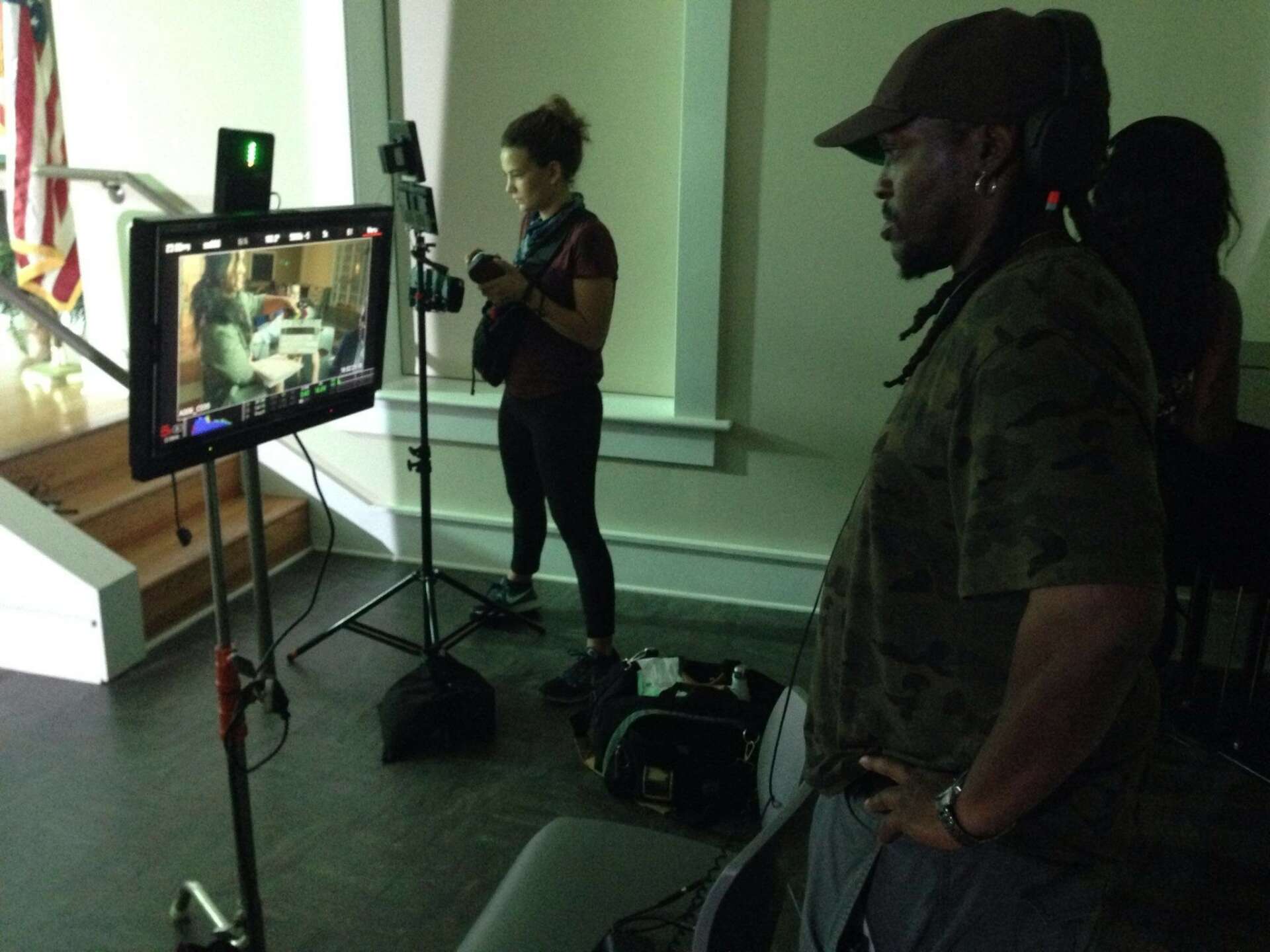

Brian, love having you share your insights with us. Before we ask you more questions, maybe you can take a moment to introduce yourself to our readers who might have missed our earlier conversations?
Once I graduated from Loyola Marymount Film School, I figured I would get a job in the film industry but the opportunities were not as I had expected. I had finally worked my way up to paying production assistant jobs after working a number of free jobs to build my resume. However the work was not as consistent, so I reached out to a friend of mine from college, Diana Germano and she helped get me a job in the mailroom at New Line Cinema. I met and became friends with Ryan Weisman, who worked as an executive assistant. I showed him a music video I had directed and edited for a friend of mine right before finishing film school. Ryan had written a script that he had hoped New Line Cinema would make. They passed and Ryan asked me if I could make his script look like the music video I showed him. I said yes, and a few months later we were shooting the film on our weekends off. I cut together a trailer that we were able to screen in the New Line Cinema screening room for anyone at the company who wanted to see it. The trailer sucked, but one of the in-house editors reached out to me and offered to teach me how to edit on an Avid if I was interested. So I would work my regular shift in the mailroom, then go down to the publicity department and learn the Avid after hours. I learned how to edit film on a flatbed Moviola in film school, so learning this new tool called the Avid was like, Neo taking the pill and freeing his mind. What I did not realize at the time was that I was being introduced to a new career. I remember being asked to cut a trailer for Jennifer Lopez’s new movie The Cell. The person who trained me said that the director Tarsem Singh was not happy with any of the publicity trailers he had seen. He then went on to laugh, as he told me that someone said he should let me try cutting a version. He continued to laugh as he told me to come in over the weekend and watch the film and then have a trailer ready to present on Monday. So I came in over the weekend. Watched the film with my brother. He left, and I cut a trailer over the next two days and presented it on Monday. I hate that I can not remember the guy’s name who taught me the Avid. I think it was Mike or Mitch, or something like that, but I never will forget his face. First of all, he could not believe I had anything to even show. He watched it the first time and had no comment. He immediately played it again and just started ripping it apart. Talking about things the MPAA would never allow. Some of the people I featured were nobodies. He just really let me have it. Two weeks later, I am at home flipping channels and I see the trailer for The Cell. They took my trailer and changed about four to six shots. I was happy at the time because I just knew I was going to get an editing job at New Line. That never happened, nor did they even give me credit for cutting the trailer. I was told that the changes to the trailer made it an original idea that was different than mine. What it did do was give me the confidence to know I could edit, so I took that trailer and anything else that I edited while there and started sending my reel everywhere. The only company that offered me a job was Vivid Video. Vivid Video at the time was a very well-known adult video production company that was shooting a lot of content, and I was just looking for an opportunity to edit full time. I was hesitant to take the job, but I never will forget my conversation with my boss at New Line Cinema at the time Louise Ransil. I was asking her opinion on leaving and going to edit for an adult video company and she said, “I am frankly surprised you are still here.” She knew I was interested in production and that this was just a stepping stone to getting where I wanted to be. So I left New Line and went to Vivid Video and started editing full-time. I honestly had never considered editing as a career path until my experience at New Line. Editing was always something I could do to save money on my projects. I mention all of this to say that I was willing to start from what many would consider the bottom, and work my way up. I just knew that I would get better the more I had the opportunity to edit. I went from Vivid Video to Hustler Video where I worked on Snoop Dogg’s Diary of a Pimp. There were a lot of music video segments cut into this project so I was able to use those pieces to transition into reality TV, with my first project being The Irv Gotti story for VH1. I was hired to edit segments that did not make the show and were used to generate internet traffic. I noticed that slowly some of my segments were being incorporated into the broadcast show. I edited a number of reality shows over the next few years really learning how to craft stories. I then transitioned into entertainment news show editing with shows like TMZ, DISH NATION, and TOP 30 NEWS. During this time I also formed my own post-production and production company aimed at providing lower-budgeted indie films a big-budget look and feel. I would basically take the money I was making and invest it in my own projects. It’s funny because even back then I would always say this seems like something I could do from home. I spent a small time editing for Corporate companies, which is a whole different ball of wax, but it gave me a chance to work with my daughter, who was just out of college, and I was building a client base. I had slowly started editing projects for individuals and companies out of the house, years before Covid happened, so the transition to remote work was a very fluid process. Today most of all the work I do is remote. I do take assignments that may require me to come into the office until the project is complete. Remote work has given me the freedom to pursue my true passion of directing and writing, while still being able to bring in a paycheck when needed. I am a firm believer in the fact that it is hard to get other people to invest in you when you have never invested in yourself. I invested in myself a long time ago and put in a lot of work to get where I am today. I am still not where I want to be, but I always say you have to get to a point where you have more people talking about you than you. I am fortunate enough that the majority of my work comes from word of mouth or people I have worked with in the past. I still grind daily just like the next person because I have certain goals I am still trying to reach. I think the one thing that I provide my clients is the fact that I have a reputation for finishing. There are a lot of people who start in this business, but there are very few who finish. I have been told more times what I will not be able to do or should have not been able to accomplish than I have been encouraged. I have grown comfortable being in uncomfortable situations. I am not special by any means, but the one thing that I do bring to every project I undertake is tenacity. I come from a sports background and pursued the dream of playing professional baseball for most of my life so hard work has never been an issue. Though I never made it beyond semi-pro baseball, it took tunnel vision to even accomplish that goal. That is the reason I named my company Tunnel Vizion Films. It’s the ability to block out everything in pursuit of a goal. Pain, pleasure, people, and personal circumstance. If I have any superpower at all, that would be it. It’s funny how questions like this take you back down memory lane. I remember wondering if any of this was even possible…to doing it…to doing it on a different level…to having others hire you to do it. There are two things that I am most proud of about this entire pursuit. One, that I never gave up, and two that my daughter got a chance to see firsthand why I work as hard as I do. I had a screening for a documentary I did called The Color of Medicine: The Story of Homer G. Phillips Hospital that screened to a full house in St. Louis. The screening was at a museum that had an overflow room that was also filled to capacity. My daughter flew out to the screening with my mother from Los Angeles and she addressed the overflow crowd at the end of the evening, thanking them for coming while I was doing a live Q&A in the main screening room. It is such a surreal moment to even think about. I had heard there was an overflow room, but when I walked through it earlier it was completely empty. I was called out of the screening with my producing partner Joyce Fitzpatrick to do an interview with the local press. To get back into the building we had to go through the overflow room. When the doors opened and I saw the overflow room filled to capacity I was shocked. I locked over and saw my daughter standing up watching the film and my eyes filled with tears, as they do now just thinking about that moment. I don’t even know if I am doing a good job of capturing that moment but as a parent, you beat yourself up so much for the sacrifices and choices you have to make to provide and to pursue your dreams. For her to see what I do and why I do it meant the world to me. For every missed school event, teacher conference, or music recital, you feel like you have failed in some way. I have never had a screening like that before, and having her there to witness it, along with my mother, who does not fly often, made the entire event a memory I will never forget. To potential clients, I say I am a creative and collaborative filmmaker, who possesses the sensibilities of a father, the compassion of a friend, and the fire of always finish.
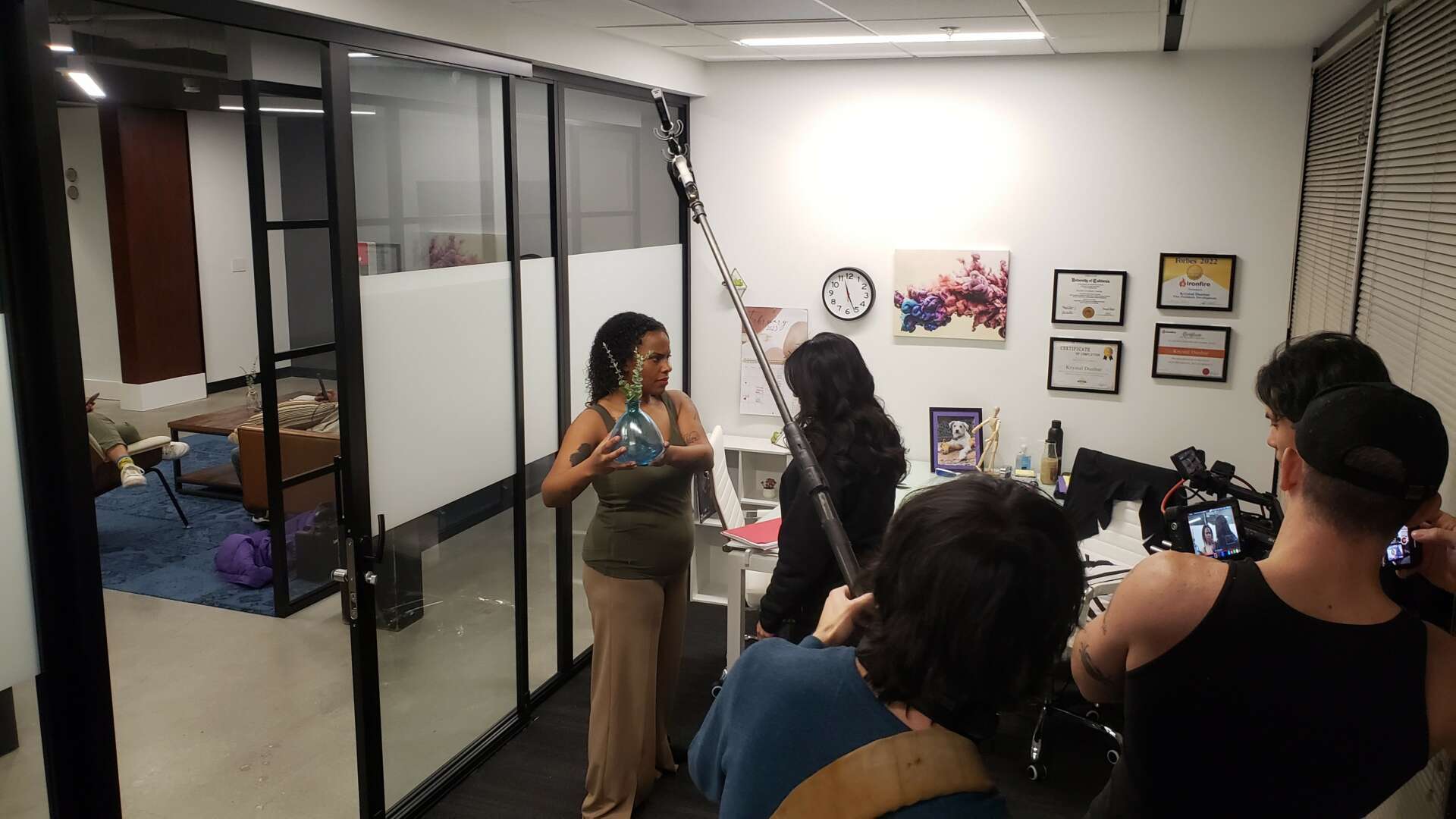
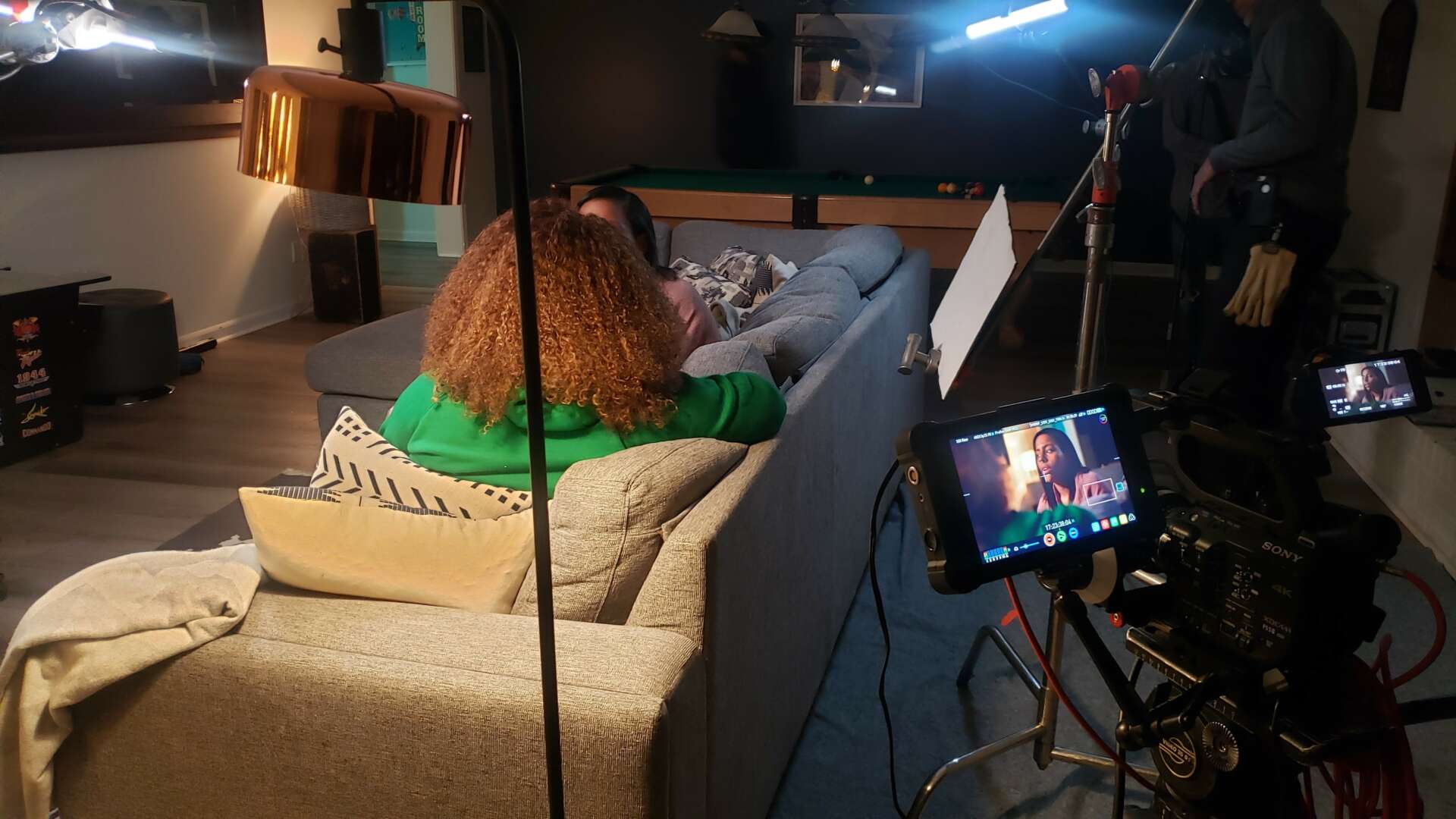
Let’s talk about resilience next – do you have a story you can share with us?
My last feature film “Lethal Love Affair” has been my most difficult and most rewarding experience. “Lethal Love Affair” is my first fully financed feature, and it is financed and distributed by the company that put out my very first film “Gettin’ Da Munchies.” I have had a long relationship and friendship with Doug Schwab and the team at Maverick. which is rare in this business. We have always stayed in contact and supported each other and the timing was right for us to work together again. This project also gave Doug and the Maverick team to meet and work with my producing partner Joyce Fitzpatrick. Joyce and I have completed three feature films together and have written the scripts or treatments for an additional ten films. She has hands down allowed me to take my directing to another level. Having someone like her with her experience and creativity is an invaluable part of my creative process. “Lethal Love Affair” was scheduled to film for 14 days in Atlanta, Georgia from the end of January to the beginning of February 2023. Like we always do, we had flown out and scouted locations, and began securing crew. I was excited to be shooting another film with my good friend Frazer Lockhart who DP’d my last feature in Atlanta “Hidden Orchard Mysteries: The Case of the Air B&B Robbery.” Hidden Orchard was a family film and we were now getting the chance to tackle a different type of story. It felt like from the moment we returned to Atlanta to film, everything had changed. The location fees we had already discussed have now increased. Crew fees that we had already discussed have not increased. To put things in perspective, it was cheaper for me to fly a location sound person in from Los Angeles for two weeks, than hire a sound person in Atlanta. I was lucky enough to find the remaining pieces of my cast and a ton of extras in Atlanta. This is why you always have a backup, to your backup plan because things always change, but this was very unexpected and eating into our budget. Another ace in the hole we had was our 1st AD and Producer Jeff Bowden who is our boots-on-the-ground contact in Atlanta. Jeff also worked with me on Hidden Orchard Mysteries and has amazing relationships with rental houses and Atlanta-based crew members. I am feeling good having all of the pieces in place. But the film gods had other plans for this film. I never will forget the sound my phone made when I rang in the middle of the night. Four days before we were to start filming I got a call from Frazer. He informed me that he was in the hospital. He was at work and blacked out and went down with his camera. My first concern was Frazer. His voice let me know that he was a bit shaken and they had to run tests, so he did not know what to expect. The next thing he told me broke my heart. He told me his camera was down. The beauty of hiring a DP like Frazer is that he comes with his own camera and a ton of bells and whistles in support gear. All of it was gone. It felt like all of the support beams I was relying on to make this film were being removed one by one. This is the first time I was ever on set wondering, can I still do this? How? I have to find a camera and a DP in four days. I was thinking I was going to have to operate the camera. Most of my shot list was designed for two cameras so I was really feeling the pressure. We had not budgeted on getting one camera let alone two. With all of the logistics of getting the cast and crew to Atlanta to film and finally securing all of my locations. I did not have a camera or DP. Joyce springs to the rescue once again remembering a submission from someone who applied to DP and had equipment. Daren Lawrence or as we have come to know and love him, Zeb. He did not have the camera we were going to use or the experience, but he did have two high-quality cameras and a willingness to learn. After finding out that Frazer was going to have to have minor back surgery but was going to be okay, he agreed to let me use his lenses and monitor, and anything else that would fit the camera package we had. We had to go onto Sharegird to find an atmos so we could shoot 4k Raw footage for coloring. We also found out we could not attach a wireless follow focus and had to go old-school whip and crank follow focus. The lenses that Frazer loaned us worked on one of the cameras but needed attachments from a rental house to work on the second camera. The camera house that we were using was closing by the time we arrived and wanted us to come back on Monday to finish setting up the cameras. Monday was supposed to be day 1 of 14 of filming. We had no choice but to push everything back one day. Another great thing about the shoot was that Frazer had hired a 1st AC who remained on the shoot. We did not have enough to pay his full rate but he was willing to help us out. Tyler Duc Cao was a lifesaver. He has a really good eye, is great with the cameras, and can operate. He also worked well with Zeb in teaching him the things that he did not know, and my gaffer and producer I have always worked with Ken Montgomery. This is the first time I have ever used the strategy of DP by committee. Whoever can get the shot done, let them operate and teach the other in the process. I ended up losing Tyler for a few days as he had already committed to another project. He sent in a replacement, Jay Smith who held it down until Tyler returned. I really had to learn what each person was best at in a short amount of time and put them in a position to best serve the film. I was very fortunate that no one had any ego issues behind the camera and we were able to work together as a team. I also had a few issues to deal with my cast. This is the first time I have ever considered replacing someone that we originally cast, but we were experiencing so many issues early on that I was concerned we might not finish the if we kept moving in the same direction. There were just a lot of issues one of my lead characters had to deal with that were outside factors that were affecting the process of making the film. As a director, your job is to make everyone feel individually heard. You spend more time as a therapist, friend, or parent, than you do as I director, but the trick is to know who you need to be and when. I am not the type to throw people under the bus or rule with an iron fist. I am always encouraging and all about putting people in a position to succeed. I remember when I was having doubts about how this project would even get down when I lost my original DP, and I spoke to a good friend and one of the executive producers on the film. He said something that stuck with me. He said, “With everything around you changing, there is one constant that the film has, and that’s you. And that’s why this film is going to be made.” He was right. I had planned and gone over this film from front to back a number of times. The film had lost everything that I thought was necessary to make the film. But I was still there. My producing team was still there. We had to do a lot of things in ways we were not used to doing, but we were able to adjust and complete the film in 12 days of filming. I was able to go over the script and cut scenes that would not affect the overall story. I worked with an amazing stunt choreographer for the first time. Brian Krainston is an amazingly talented individual who came out and choreographed all of our action sequences as well as provided us with a stunt double and a green screen studio to shoot our epic ending sequence. This film had so many highs and lows but at the end of the day when it was all said and done, we finished. I have recently completed post-production on the film and it is currently going through color correction and sound mixing. I will be delivering the film to Maverick by the end of September. This film taught me so much about myself and how it takes Tunnel Vizion to be able to see and cross the finish line. The beautiful thing is that you would never know any of this took place by looking at the film. The performances in front of and behind the camera are something that I am very proud of. Most of the people on the cast and crew never knew about all of the obstacles we faced in making this film, and rightfully so. A set always operates from the top down. If the top has everything under control that feeling trickles down to everyone else. It’s the same thing if the top does not have everything under control. That feeling will also trickle down to everyone else. When I am setting bullets, or calm as a breeze, you will never know the difference. I am smiling regardless and focused on one thing…getting across the finish line.
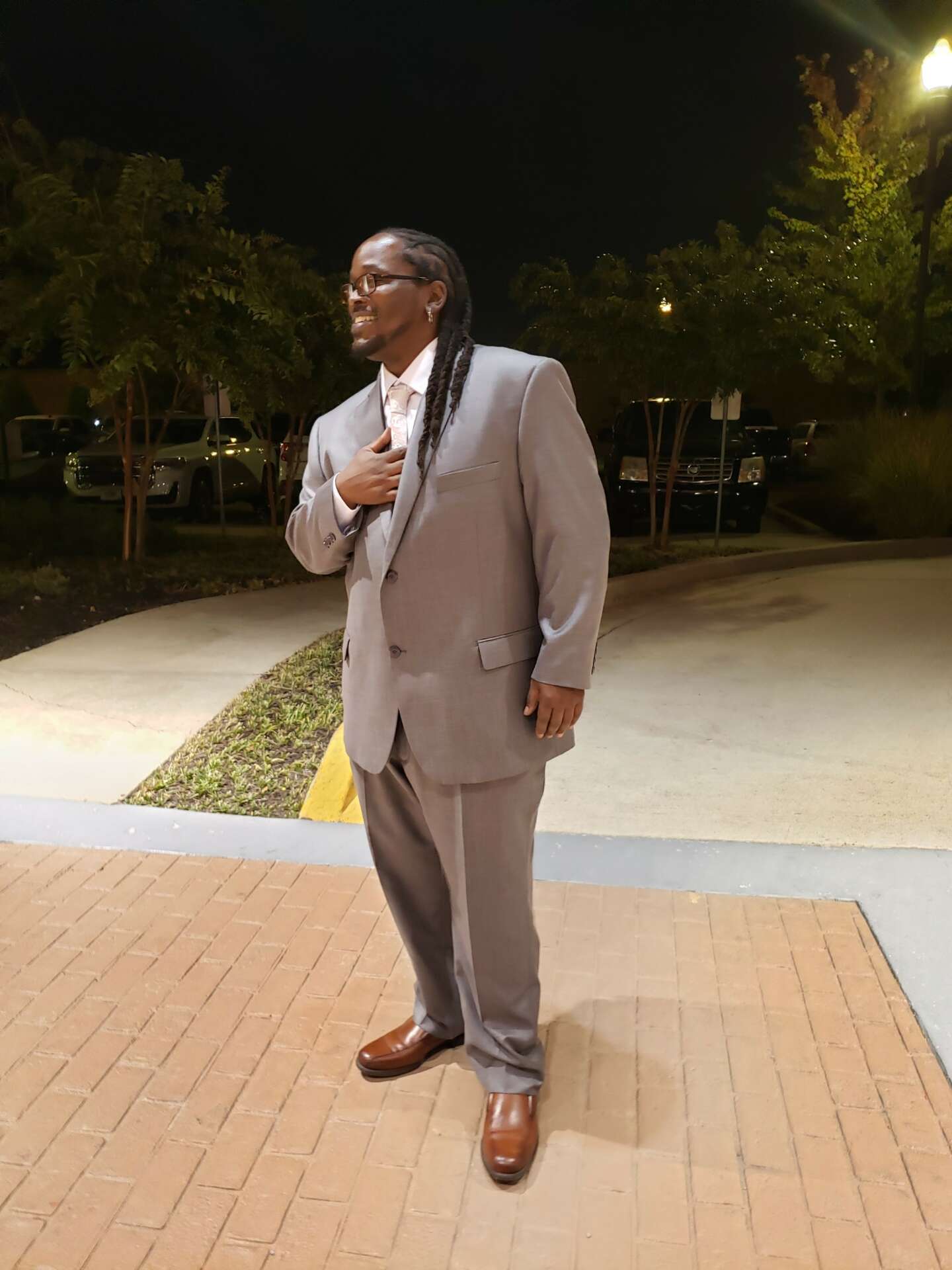
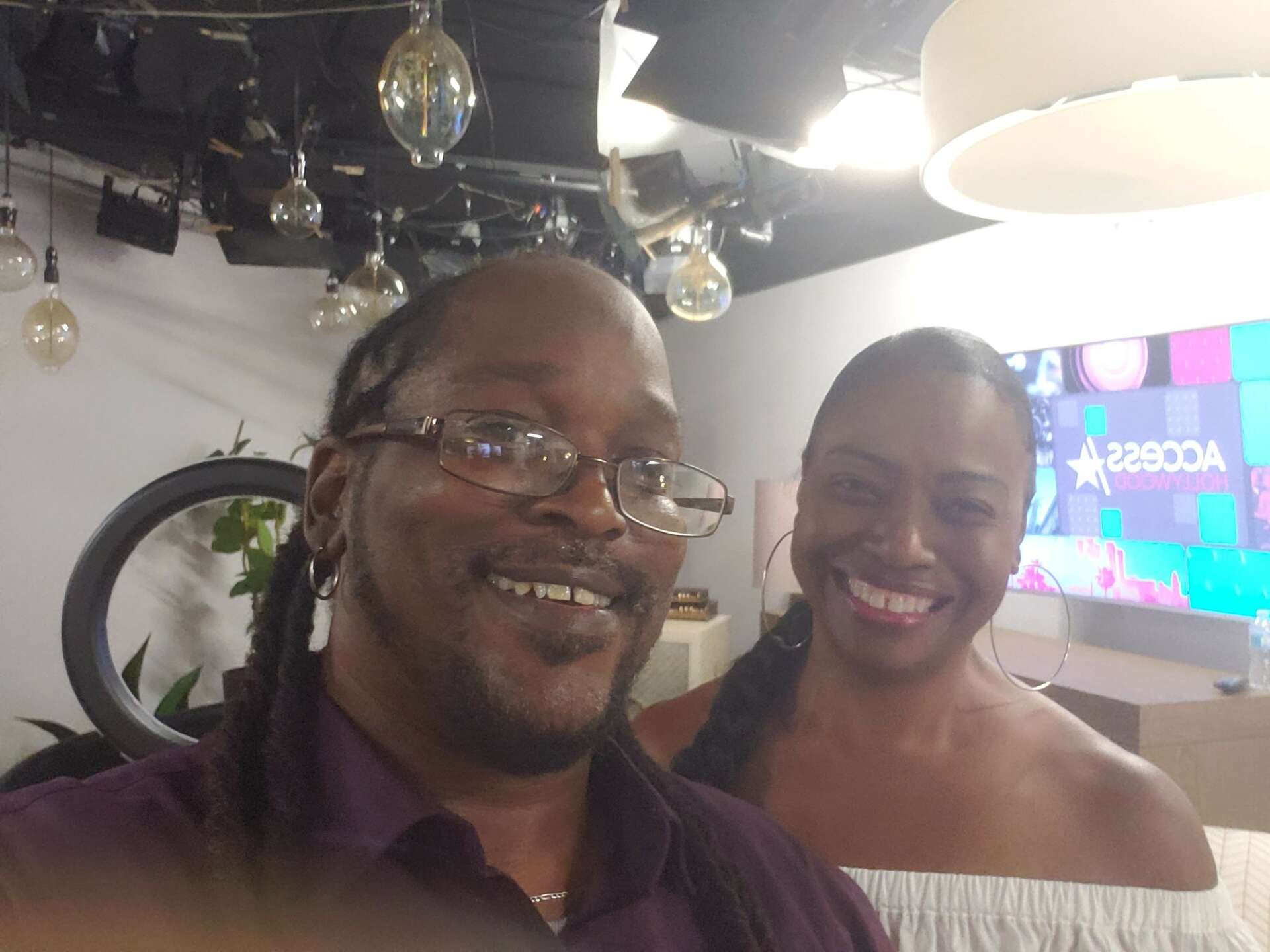
Is there a particular goal or mission driving your creative journey?
I still have the same goal I first had when making the choice to pursue filmmaking. I simply want to tell stories that would not exist, unless I told them. I do not have dreams of directing the next blockbuster from Marvel, nor would I turn down that opportunity. From the documentaries I have made, to the family film, and now the thriller. I have gained enough confidence in my storytelling to realize that I have a unique perspective, a unique voice, and a unique talent that I wish to share with anyone who is interested. I’m not sure if I am concerned with legacy as much as I am with the ability to show people what is possible. Like the great John Singleton said, “We all have a story to tell, we’re just not all good storytellers.” I fell in love with the power of film at a very early age, and I still possess that same feeling I had way back then. I just love the fact that some day long from now, a boy or girl, a man or a woman, can watch one of my films and experience one of my stories and not only be entertained but think to themselves…I can do that! Because they are one hundred percent right. And they too have stories that will not be told unless they tell them.
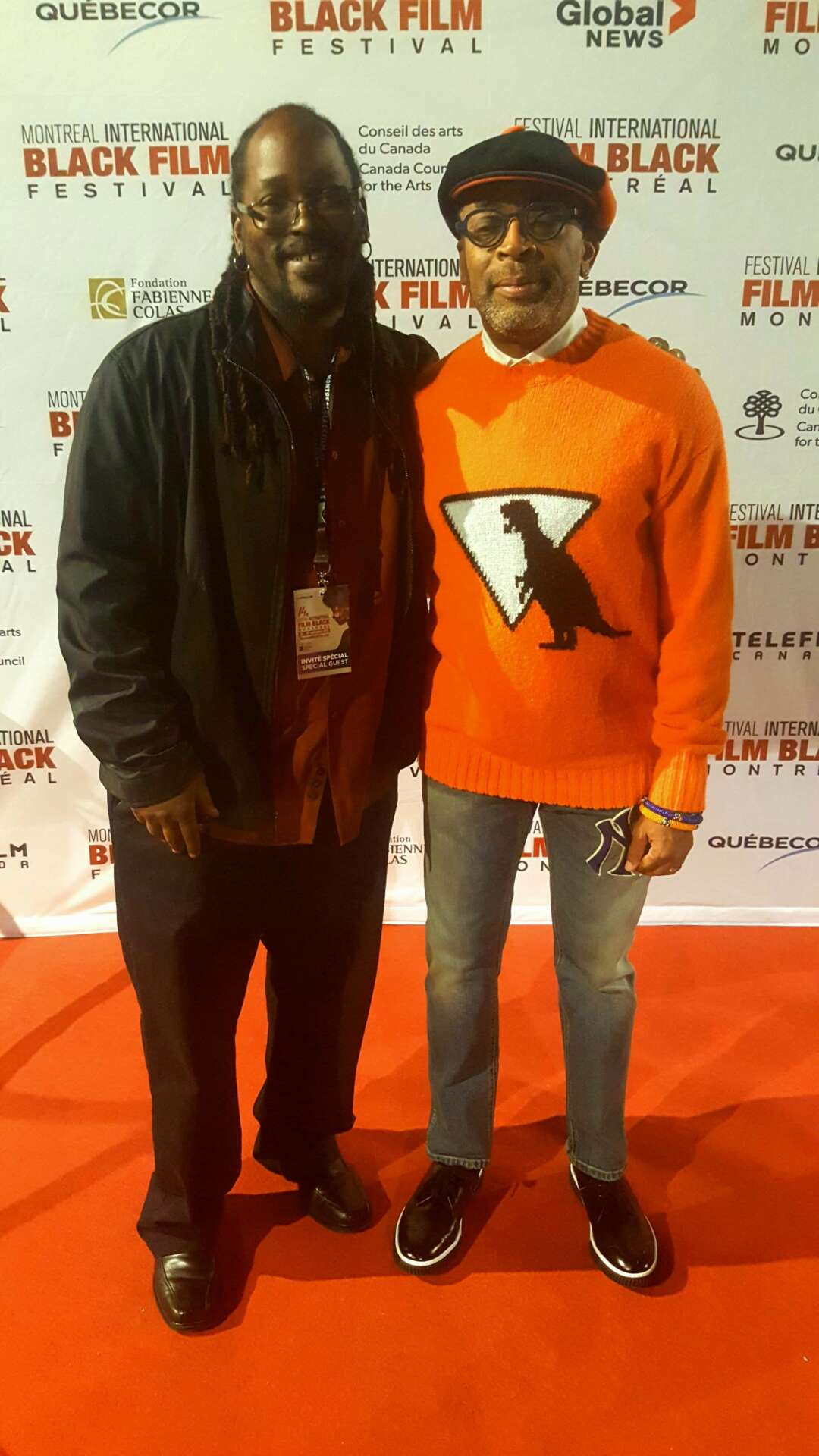

Contact Info:
- Website: www.briancshackelford.com
- Instagram: https://www.instagram.com/pixasso72
- Facebook: https://www.facebook.com/brian.shackelford.9
- Linkedin: https://www.linkedin.com/in/brian-shackelford-0b4131a/
- Twitter: https://twitter.com/pixasso72
- Youtube: https://www.youtube.com/@pixasso1972
- Other: https://www.youtube.com/@brianshackelford8271 https://www.youtube.com/watch?v=l4OJuc91g08&t=3327s https://www.youtube.com/watch?v=mVxgfZWiGuQ&t=1688s https://www.youtube.com/watch?v=UnKwHPhy_1w&t=1s https://vimeo.com/user5846249


